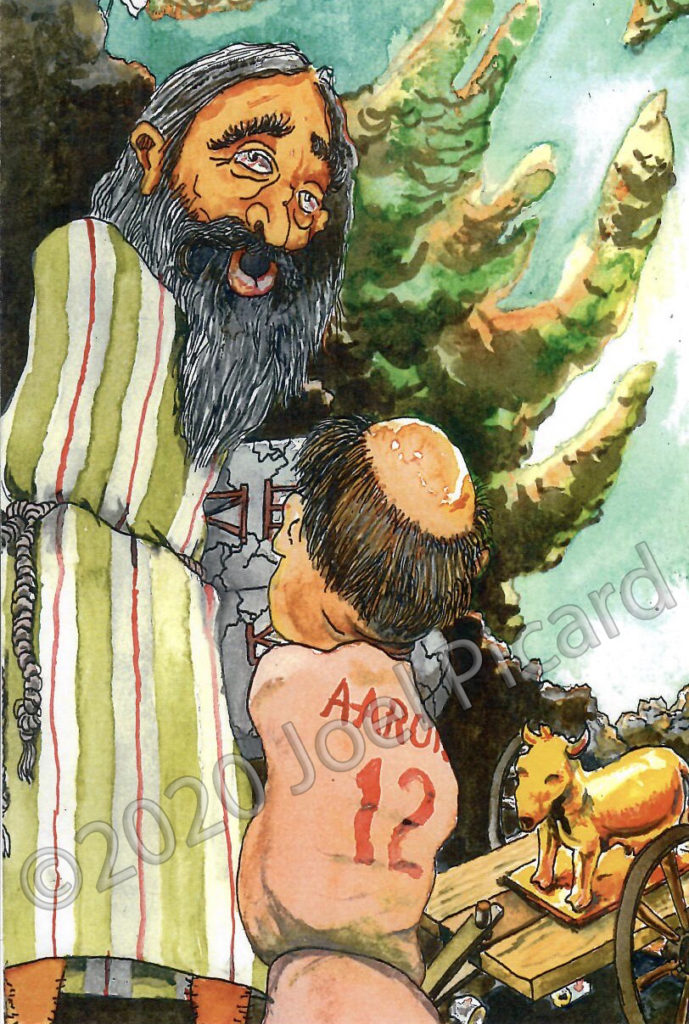Exodus 33

“This? Oh, these are the ten commandments, still smokin’-hot from the
finger of God by which they were cut. And if you look a little more closely
you’ll see that it says right here, ‘Thou shalt make no graven
images.’ So…I’m afraid your little cow friend over there qualifies as first-
class violation.”
“Geez, Aaron. I leave you in charge alongside of Hur (say, where is Hur?)
and I come back and find that you’ve let the whole place go to pieces. To
tell you the truth, I was thinking of conferring the priesthood on you. But now
I’m not so sure…or, at least not before I draw up some tighter guidelines.”
And thus, the book of Leviticus follows, and finds its rationale as a brake
to shackle the possible abuses of priest-craft and sacrifice–activities
which clearly pre-date the book of Leviticus (cf. Ex 19:21; Ex.32:6-7.
Here we have priests and offerings which precede any Levitical
prescriptions! See also Jer. 7:21 whereat the prophet indicates that
sacrifices were NOT commanded by God.)
How can we imagine that God did not command sacrifices? Simply by
observing that such practices are not so much recommended by God as
they are regulated by him so as to restrain and restrict abuses until the
whole system can be jettisoned altogether. (“I desire mercy, not
sacrifice.”)
Jesus is the perfect sacrifice to end all sacrifices, not in the sense that
he is the finest example of a fine practice, but in the sense that he is
the end and elimination of the continuance of a bad practice to begin
with.
The story of the golden calf is a story of why Leviticus is necessary, as
a code to regulate what man-made religion imposes.
©2020 Joel Picard